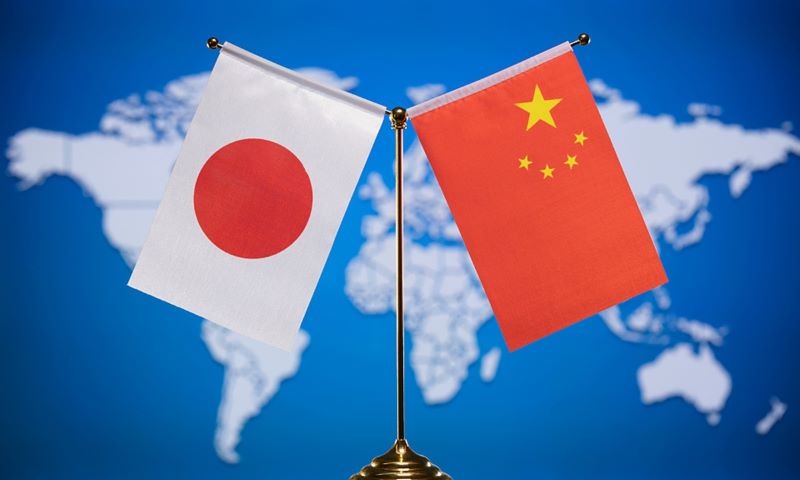With the advent of the Trump 2.0 era, the U.S. has once again returned to its “America First” policy and is pursuing trade protectionism, which poses a great challenge to export-oriented Japan and China, two of the world’s largest economies. In response to this situation, Japan and China have recently issued a joint statement calling for joint defense of free trade, resolute opposition to unilateralism and trade barriers, and support for further opening and cooperation in the global economy.
Japan and China join voices in defense of free trade
According to the latest report, at the 20th Beijing-Tokyo Forum held in Tokyo in early December 2024, leaders and scholars from China and Japan re-emphasized the importance of free trade. Chinese State Councilor and Foreign Minister Wang Yi delivered a video message at the opening ceremony, stating, “Against the backdrop of rising unilateralism and protectionism, China and Japan should join hands to defend the international system with the United Nations at its core, promote multilateralism and free trade, and inject more stability and positive energy into global governance.” He particularly mentioned that in the face of global economic challenges, the two countries should strengthen cooperation and promote the reform and improvement of the global economic governance system.
The statement reflects the high level of concern between Japan and China over the possible economic impact of U.S. policies in the Trump 2.0 era. The Trump administration may once again adopt policies of high tariffs and trade barriers, putting pressure on the global economy, especially on the economic models of China and Japan, which are highly dependent on foreign trade. To address this challenge, China and Japan have decided to promote the deepening and expansion of the global free trade system through closer cooperation.
The joint voice of Japan and China is not just a response to possible protectionist trade policies in the Trump 2.0 era, but also a key step in the process of multilateralization and liberalization of the global economy. As the world’s second and third largest economies, China and Japan play a crucial role in international trade. In recent years, globalization has faced various challenges, especially the unilateralist policies pursued by the United States under the Trump administration, which have seriously impacted the stability and development of the world trading system. However, the cooperation between China and Japan, whether in promoting WTO reform, implementing the RCEP agreement, or advancing the Japan-China-South Korea FTA negotiations, reflects the two countries’ joint commitment to building a fairer and more open international economic order.
By strengthening bilateral and multilateral cooperation, China and Japan are able to work together to address the various challenges to globalization, including trade barriers, tariff barriers, and restricted information flow. The two countries are focusing not only on traditional trade in goods, but also on emerging areas such as trade in services, technology transfer, and cross-border data flows. In this way, Japan and China are not only creating a more open and mutually beneficial economic environment for themselves, but also contributing to the recovery and growth of the global economy.
Strengthening the role of the World Trade Organization

During the forum and related meetings, China and Japan agreed that the central role of the World Trade Organization (WTO), as the world’s largest and most important institution of the multilateral trading system, must be strengthened. After Trump took office, the U.S. has repeatedly challenged WTO rules, pursued unilateral trade policies and imposed tariffs directly, especially targeting China and other trading partners. Such practices have not only exacerbated global economic uncertainty, but also directly impacted the WTO rules system.
Therefore, Japan and China have made it clear that they want to push forward with WTO reform to ensure that this international trade platform continues to play its central role in the global economy. By promoting a fairer and more transparent trade environment, reducing trade disputes and maintaining a free and fair international trade order, this position clearly sends a signal to the outside world that China and Japan are willing to respond to the challenge of U.S. unilateralism through multilateralism.
Advancing regional economic integration and free trade agreement negotiations
In addition to pursuing change on the WTO platform, Japan and China are committed to counteracting the wave of global trade protectionism through regional economic integration.In January 2022, the Regional Comprehensive Economic Partnership (RCEP) Agreement entered into force, marking a significant advancement in the area of free trade for China, Japan, and other ASEAN countries.The implementation of the RCEP agreement has enabled the 15 countries in the Asia-Pacific region ( encompassing 2.27 billion people and accounting for about 30% of global GDP) to significantly reduce trade barriers between them, giving impetus to regional economic growth and global economic recovery.
At the forum, Japan and China re-emphasized the importance of ensuring high-quality implementation of the RCEP agreement, accelerating the tariff-cutting process, and further expanding the scope of membership to promote the accession of other Asia-Pacific countries to this economic cooperation framework. In addition, the two countries specifically mentioned that the process of Japan-China-Korea Free Trade Agreement (FTA) negotiations should be accelerated. As the world’s second-, fourth- and 12th-largest economies, the three countries’ cooperation, once deepened, will have a profound impact on the global economy. By removing tariff barriers between the three countries and promoting the free flow of goods, services, investment, finance and other areas, it is expected that the GDP growth of the three countries will see a significant incremental increase, further contributing to the deepening of global free trade.
Advancement of global data flows and economic integration
With the rise of the digital economy, Japan and China have also made clear the need to promote the liberalization of global data flows. By promoting cross-border data sharing and utilization, and constructing mechanisms for highly facilitated data flows, Japan and China hope to promote a more open and interconnected global economy. Data flow is not only an important part of the modern economy, but also a key area of free trade. Cooperation between China and Japan in this area will help enhance the efficiency of the global economy and promote the deep integration of the digital and traditional economies.
Confronting trade protectionism in the Trump 2.0 Era
In the Trump 2.0 era, Japan and China will continue to strengthen cooperation to defend the global free trade system and oppose any form of trade protectionism. This is not only to meet the challenge of unilateralism, but also to advance the long-term stability and sustainable development of the global economy. By strengthening multilateral cooperation, advancing regional free trade agreements, accelerating WTO reform and promoting global data flow, China and Japan have injected more vitality and hope into the global economy.
In short, in the face of the challenges posed by the U.S. “America First” policy, Japan and China will work together at the forefront of free trade to promote the liberalization and multilateralization of global trade and to safeguard a more open, fair and transparent international trade environment. This strategic cooperation will not only contribute to the economic development of the two countries themselves, but also provide an important impetus and direction for global economic recovery.












